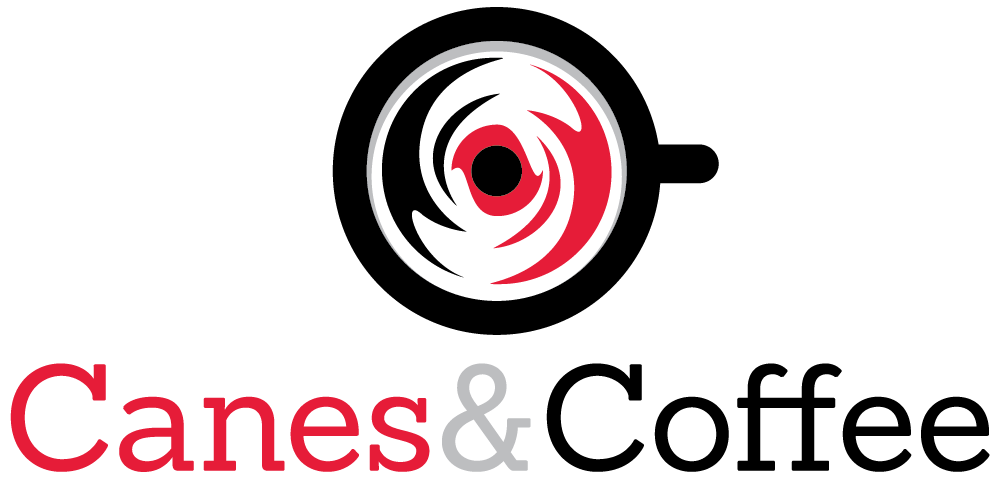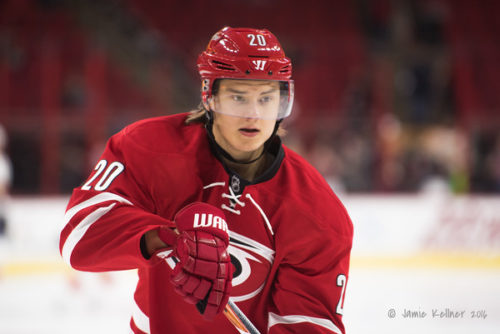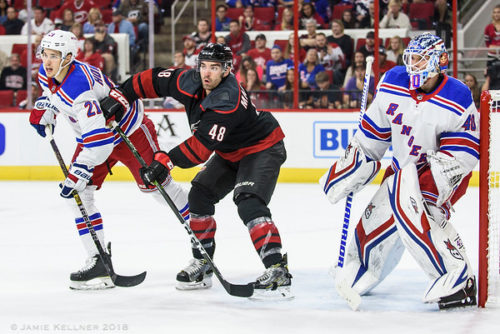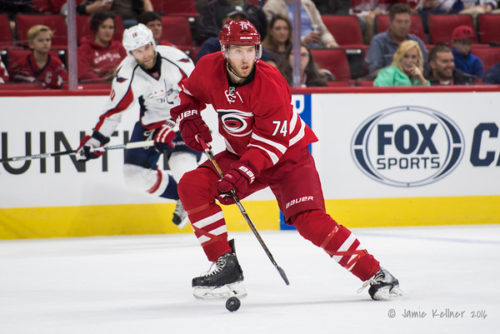Earlier today, I wrote an article entitled, “Who are these Boston Bruins?” that looked at the Bruins from 2019 playoffs, 2019-20 regular season and the 2020 playoff round robin. That article is HERE.
For the Carolina Hurricanes, the 2019 NHL Playoffs were nothing short of magical. After a decade-long playoff hiatus, the Hurricanes scratched and clawed to get into the playoffs (which was a huge success in and of itself) and then bettered that by a WIDE margin in beating the Washington Capitals in an enthralling seven-game series. The quick sweep of of New York Islanders in the second round had Canes fans legitimately starting to wonder, “Could it really happen?” But after a long layoff after the second round sweep, the Hurricanes never really got up and going against the Boston Bruins and were quickly bounced from the playoffs in a four-game sweep. The Hurricanes were outscored 17 to 5 in the series and were really only close in a game 3 loss by a 2-1 margin that was the last gasp to try to climb into the series. The series at hand features a huge amount of wild cards with the long layoff, a possible revenge motivator for the Canes and simply the young Hurricanes squad being another year old, stronger and maybe wiser. But despite the number things that make current series an entity of its own, there are still takeaways/things to consider from last May.
Leadership and poise
I feel like it is almost sacreligious to even talk about it based on all he did to help the team reach that level, but Justin Williams seemed to come unglued in the Bruins series. Not sure what it was, but Torey Krug seemed to get in Williams head at some point and proceeded to set up temporary residence for the entirety of the series. The result was Williams running around trying to extract some revenge. He took a couple penalties as a result, but I think the bigger thing might have been the subtle but significant effect on the team’s psyche seeing the role model off track. In game 2, Williams took penalties in the first and second periods. Both led to power play goals against and helped the Bruins run out to a 4-0 lead after two periods on the way to an easy win. In game 3, Williams became unhinged and took three penalties in the first period. (One was at least offsetting roughing penalties for Williams and Krug.) No doubt, the Bruins will remember and will poke at Williams early in the series to see if they can get him off track again.
Special teams
Arguably the deciding factor of the series was special teams. The Bruins outscored the Hurricanes on the power play in all four games and by a 7 to 1 margin for the series. The Hurricanes killed off barely over half the penalties, 8 out of 15 for 53 percent. On the flip side, the Hurricanes were 1 out of 14 for the series on the power play. Trying to make up 1.5 goals per game in 5-on-5 hockey is always tough sledding. If one consider that one of the Hurricanes few struggles in the Rangers series was taking too many penalties, this one is definitely worth watching.
While there is definitely an element of just being better, I think there is also a tactical coaching element to this one in terms of personnel and tactics. Special teams are different in the playoffs where a game of adjustments ensues over the course of repeated games. Because of the visuals of him being willing to step in front of shots and then hobble noticeably hurt to the bench, Brock McGinn is arguably the poster person for the Canes penalty kill. But against good teams in the playoffs in 2019, he struggled. McGinn was on the ice for 5 of the 7 power play goals that Boston scored and also 6 of 6 against the Capitals. In total for the playoffs, McGinn was on the ice for 12 power play goals against (out of 16 that Canes allowed) in 15 games for the 2019 playoffs. Worth noting is that this is also a decent proxy for Jordan Staal who mostly paired with McGinn on the penalty kill.
The best thing is just not taking as many penalties, but the Hurricanes will also need to either score at a high rate on the power play or tighten up a bit defensively to be break even or better on special teams this time around.
The forecheck
The single biggest driver of Canes hockey success during the second half of the 2018-19 regular season and the playoff series wins was the team’s forecheck. When clicking, the forecheck generated turnovers and good scoring chances across all four lines and was therefore the ignition switch for a balanced offense. The combination of an aggressive forecheck and roaring crowd is what turned the Capitals’ series after two road losses to start. The forecheck also played a significant role in the Hurricanes sweep of the Islanders. But with a combination of a solid and balanced blue line and forwards and a system that consistently support the puck against an effective forecheck, the Bruins seemed to mostly immune the Hurricanes’ pressure.
The questions here are twofold. Can the Hurricanes find a higher gear and/or prey upon a Bruins team that is maybe not up to speed yet? If so, the formula starts to look like the Rangers series win and the 2019 playoff success. If the Bruins are again effective at neutralizing the forecheck and able to methodically advance the puck through the first two layers of Canes pressure, are the Hurricanes capable of winning a hockey series against a good team without having the ice tilted in their favor? The success/failure of the Hurricanes forecheck permeates all aspects of the game. When successful, it is a primary source of offense across all four lines. And as demonstrated in the Rangers’ series, when successful the forecheck greatly minimizes the pressure on the Canes blue line and goalies.
My hunch is that the Canes will need to have at least moderate and/or intermittent success with the forecheck to prevail against a good Bruins team. But at the same time, I think Hurricanes will need to be able to find some success outside of a forecheck-driven attack whether that is on special teams, from getting a couple lines clicking or something else.
Best against best in the playoffs
Though they might not always play directly against each other because of coaches managing match ups, playoff series are very often decided by which team’s best players have the better series. Though their scoring totals were not monstrous, the Bruins top line of Brad Marchand, Patrice Bergeron and David Pastrnak were far and away the best line in the series and consistently tilted play in the Bruins favor. Combined with some power play production, the trio drove the outcome of the series. On the Canes side, Sebastian Aho and Teuvo Teravainen were not terrible, but they just did not have the same effect on the series.
Fast forward to today and the Canes top line of Sebastian Aho, Andrei Svechnikov and Teuvo Teravainen was very clearly the best line on the ice in the Rangers series. The trio was a thread almost every time it was on the ice, and they piled up massive point totals while being a primary factor in the win.
The outcome of the series could hinge on if Aho and company can continue their strong play against a tougher defense or if instead the Bruins trio again is the series best.
What say you Canes fans?
1) Of the factors noted above from the 2019 Bruins/Hurricanes playoff match up, which do you think is most important to rectify coming into the 2020 match up?
2) What other carry overs do you see from last year’s series against the Bruins?
3) Complete this sentence: The Hurricanes will win the series if they can improve on ______ from the 2019 series.
Go Canes!



